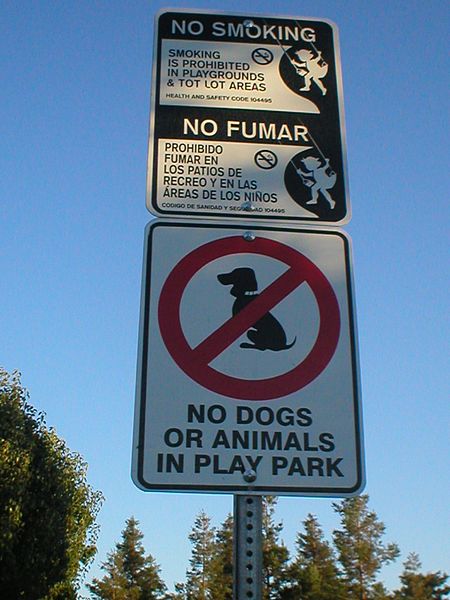Social control is the regulations, sanctions, mechanisms, and systems that restrict the behaviour of individuals in accordance with social norms and orders. Through both informal and formal means, individuals and groups exercise social control both internally and externally. As an area of social science, social control is studied by researchers of various fields, including anthropology, criminology, law, political science, and sociology.
Signs warning of prohibited activities; an example of social control
Social norms are shared standards of acceptable behavior by groups. Social norms can both be informal understandings that govern the behavior of members of a society, as well as be codified into rules and laws. Social normative influences or social norms, are deemed to be powerful drivers of human behavioural changes and well organized and incorporated by major theories which explain human behaviour. Institutions are composed of multiple norms. Norms are shared social beliefs about behavior; thus, they are distinct from "ideas", "attitudes", and "values", which can be held privately, and which do not necessarily concern behavior. Norms are contingent on context, social group, and historical circumstances.
Shaking hands after a sports match is an example of a social norm.
"Normal = bad word", a graffiti in Ljubljana, Slovenia
Figure 1. The return potential model (reproduced from Jackson, 1965).




